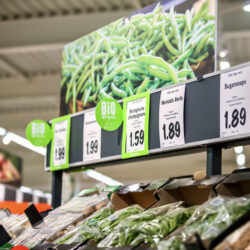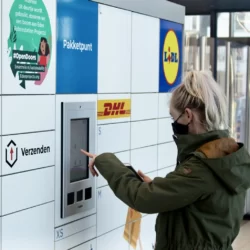Lidl phases out air freight for fresh produce

Grocery retailer Lidl has announced plans to stop using air freight to source fresh fruit and vegetables for its Dutch stores. This measure is aimed at reducing the carbon emissions associated with the transport of fresh produce.
Lidl will gradually switch to alternative modalities for the transport of fruit and vegetables, starting with phasing out the use of air freight for asparagus tips, green beans and fresh legumes. Air freight will not be used for any of its fresh produce as of March 2023.
“We are committed to meeting the targets of the Paris Climate Agreement,” stated Quirine de Weerd, Senior Manager Corporate Social Responsibility and Relations at Lidl Netherlands. “This decision contributes to our sustainability goals and is a good fit with us as a sustainable, efficient and cost-conscious organization.”
Short supply chain
Lidl Netherlands is following in the footsteps of Lidl Sweden, which was the first in the group to ban air freight for fruit. The company is keen to point out that almost all fresh produce in its Dutch stores has been grown in the Netherlands. This helps the grocery retailer to keep the supply chain as short as possible.
Lidl claims to be the Netherlands’ first supermarket chain to move away from air freight for fresh produce, but fellow grocery retailer Plus maintains that it stopped importing most fruit and vegetables by air several years ago, with the exception of green asparagus. Plus is still looking for an alternative solution for that.
Transport in ocean containers
Only a small percentage of all imported fresh produce arrives in the Netherlands by air: less than 1%, according to Dutch financial newspaper FD on the basis of European import data. Products such as avocados, berries, cucumbers and mangos are transported as air freight, but approximately 70% of all fruits and vegetables are shipped in ocean containers.
This summer, Lidl set up its own shipping company called Tailwind Shipping Lines as its solution to the problems in container shipping such as slow delivery and high prices. Tailwind currently operates routes between three ports in China and three European ports: Koper, Barcelona and Rotterdam.










